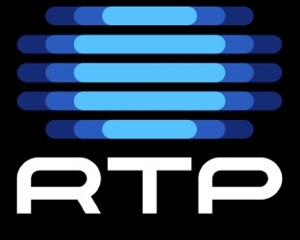The government of Guinea Bissau has come under strong suspicion after the transmission of two foreign media channels were interrupted on July 13, 2023. However, it has denied responsibility for the interruptions.
Ahead of the shutdown, the government had released a statement in which it rebuked the media outlets over alleged biased and offensive reportage against the country’s head of state.
RTP África and RDP África, both owned and operated by Portuguese state-owned public broadcaster, Rádio e Televisão de Portugal, experienced the disruption four days after the government had threatened to take “corrective measures” against the media outlets, over supposed editorial bias, targeting President Umaro Sissoco Embaló and a particular group of rulers in the country. The government said that the two channels were indulging in “shameless accusations.”
Government spokesperson, Fernando Vaz, criticized the media outlets for their alleged failure to report positively on the first summit of West African heads of states hosted by Guinea-Bissau. Mr. Vaz had lamented that the summit was a significant milestone for the country after half a century of independence. The spokesperson accused the media of attempting to undermine President Embaló’s reputation, and downplay Guinea-Bissau’s diplomatic achievements.
A few days after the statement, the signals of the Portuguese media organizations were cut off with the channels releasing, a short message on their website, to explain that the interruption was a matter of “higher orders”.
Against this background, the break in transmission of the two media channels were widely suspected to have been orchestrated by the government in execution of its threat.
However, in a statement issued on July 15, 2023, the government denied being behind the disruption. It claimed that the Portuguese state-owned media outlets RTP África and RDP África were off-air due to technical issues caused by heavy rainfall and strong winds.
“Guinea-Bissau is a democratic state under the rule of law, where press freedom and freedom of expression are guaranteed. All national and international radio stations which do not have specific agreements for broadcasting on national antennas are operating normally, including RTP Africa and RDP Africa,” the government said in its statement.
However, the government statement has been received with a lot of doubt by many in the country and rejected by the media fraternity. A senior journalist with the affected media organisations who spoke to the Media Foundation for West Africa (MFWA) on condition of anonymity, dismissed the government’s claim that the channels went off-air due to technical issues caused by heavy rainfall and strong winds.
“Futile, these are lies with no substance. There were no technical issues of any sort, as many other big media, including the state media, kept broadcasting,” the journalist said.
An executive of one of the leading press freedom organizations in the country also insisted that the disruption was not the result of any natural occurrence but an act of sabotage. They fell short of mentioning the perpetrators, after revealing that the technicians at site where the media’s antennas are located, received orders to cut the signals.
The Media Foundation for West Africa (MFWA) welcomes the resumption of broadcasting by the media outlets. However, we find the circumstances surrounding the interruption quite suspicious and smacking of a deliberate act of intimidation.
While we recognize the government’s right to protect its reputation against any unjustified attacks or accusations, it is important that such a right is not exercised to stifle the media.





